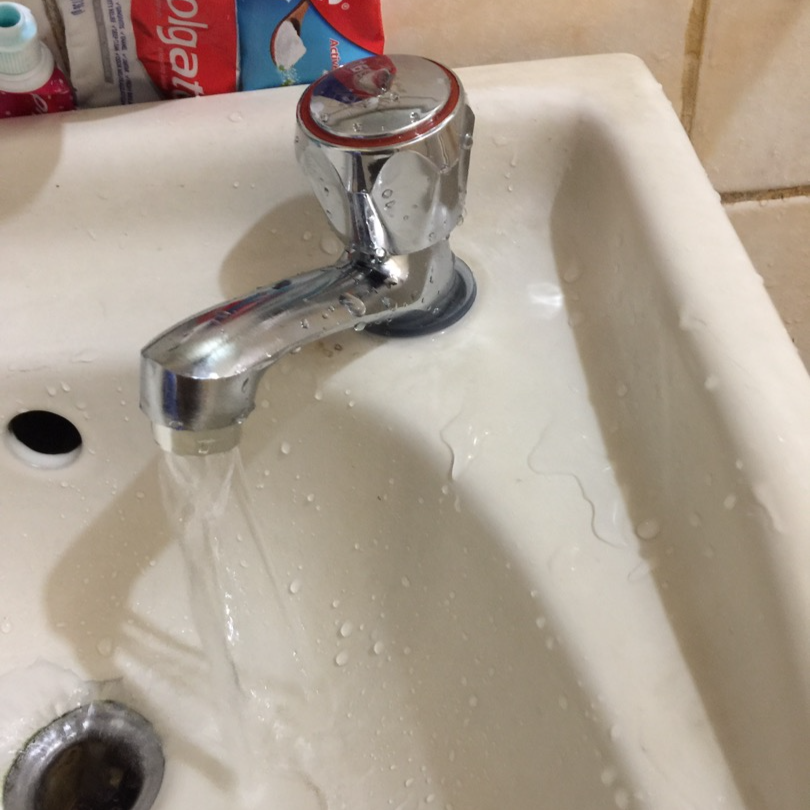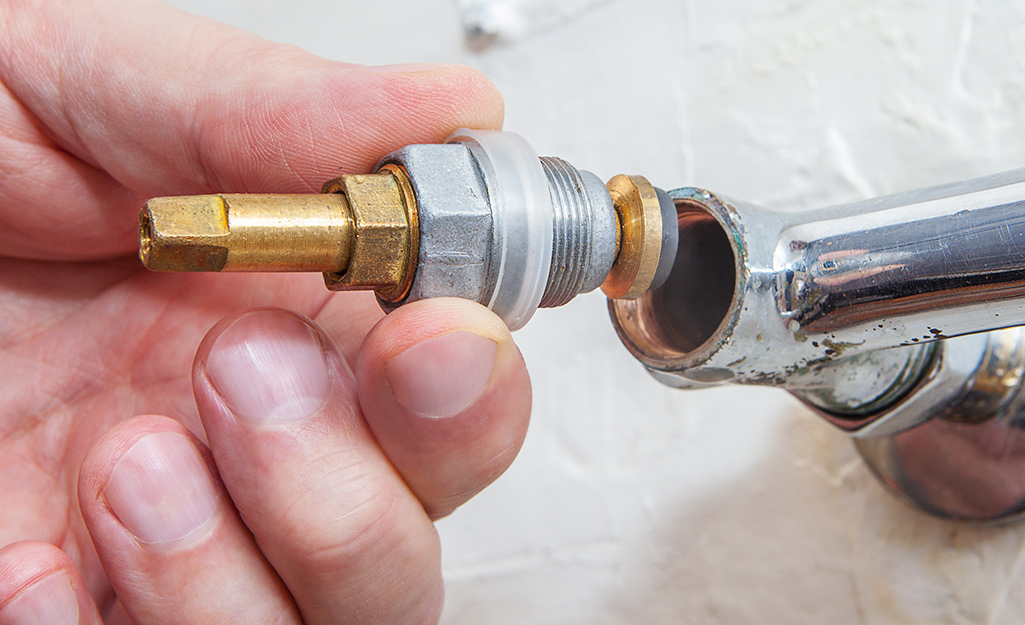The Motives Behind Dealing with a Faulty Faucet
The Motives Behind Dealing with a Faulty Faucet
Blog Article
What are your beliefs about Why Is It Important To Fix Your Leaking Tap/Faucet??

Trickling faucets might appear like a minor trouble, yet their impact goes beyond simply the inconvenience of the audio. From drainage to sustaining unnecessary financial expenses and wellness risks, overlooking a leaking tap can cause various effects. In this article, we'll look into why it's important to resolve this typical family concern immediately and successfully.
Waste of Water
Environmental Impact
Trickling taps contribute considerably to water waste. According to the Environmental Protection Agency (EPA), a solitary faucet trickling at one drip per secondly can squander more than 3,000 gallons of water each year. This not only pressures water resources but additionally affects environments and wild animals based on them.
Step-by-Step Guide to Taking Care Of a Dripping Tap
Tools Required
Prior to trying to repair a trickling tap, collect the needed devices, including an adjustable wrench, screwdrivers, replacement parts (such as washers or cartridges), and plumber's tape.
Usual Faucet Issues and Their Solutions
Recognize the kind of tap and the specific problem triggering the drip. Usual troubles consist of worn-out washing machines, rusty valve seats, or damaged O-rings. Refer to manufacturer guidelines or online tutorials for detailed advice on repairs.
Financial Costs
Raised Water Bills
Beyond the environmental influence, dripping faucets can blow up water expenses substantially. The built up wastage gradually equates right into higher utility costs, which can have been stayed clear of with prompt repairs.
Prospective Building Damages
Moreover, prolonged dripping can result in damage to fixtures and surface areas bordering the tap. Water accumulation can create discoloration, deterioration, and even structural concerns if left ignored, resulting in added repair service expenses.
Wellness Problems
Mold and Mold Growth
The consistent existence of dampness from a dripping tap develops an excellent setting for mold and mildew and mold development. These fungis not only compromise indoor air quality but additionally present health risks, specifically for people with breathing conditions or allergic reactions.
Waterborne Illness
Stagnant water in dripping taps can end up being a breeding place for microorganisms and various other pathogens, enhancing the threat of waterborne conditions. Pollutants such as Legionella microorganisms thrive in stationary water, potentially causing significant diseases when ingested or breathed in.
Do it yourself vs. Specialist Fixing
Advantages and disadvantages of DIY Repair Work
While some might try to take care of a trickling faucet themselves, do it yourself repair work include their very own collection of difficulties. Without proper understanding and devices, do it yourself efforts can worsen the problem or cause insufficient repair services, extending the issue.
Benefits of Working With a Specialist Plumber
Employing a professional plumber ensures that the underlying source of the leaking faucet is resolved successfully. Plumbings have the experience and tools to identify and repair tap problems efficiently, conserving time and minimizing the danger of additional damage.
Ecological Duty
Private Contribution to Preservation
Taking obligation for fixing trickling faucets straightens with broader efforts towards water preservation and environmental sustainability. Every individual's actions jointly make a substantial impact on preserving valuable sources.
Sustainable Living Practices
By prioritizing punctual repairs and embracing water-saving behaviors, people contribute to sustainable living practices that benefit both existing and future generations.
Safety nets
Routine Maintenance Tips
To stop leaking taps, perform routine upkeep such as cleansing aerators, examining for leaks, and changing damaged components quickly. Furthermore, take into consideration mounting water-saving devices or upgrading to much more reliable components.
Importance of Prompt Repairs
Dealing with leaking faucets as soon as they're discovered avoids additional water waste and prospective damage, eventually saving both water and money over time.
Effect On Property Worth
Understanding of Well-Maintained Residential Property
Preserving a residential property in good condition, including addressing upkeep issues like trickling faucets, boosts its viewed worth and value amongst possible purchasers or tenants.
Influence on Resale Worth
Residences with properly maintained plumbing components, including faucets, command higher resale values in the property market. Attending to leaking taps can contribute to a positive perception throughout property examinations and negotiations.
Conclusion
Attending to a dripping tap goes beyond simple ease; it's a vital action towards conserving water, decreasing monetary prices, and guarding wellness and residential or commercial property. Whether with DIY fixings or specialist aid, doing something about it to deal with trickling taps is a little yet impactful method to promote responsible stewardship of sources and add to a much healthier, much more sustainable future.
How to Fix a Leaky Faucet: Step-by-Step Repair Guide
A leaky faucet may seem like a simple annoyance, but if it's not fixed promptly, that leak could cost hundreds to potentially thousands. From water damage to mold, mildew, and high water bills, even a tiny leak can be catastrophic if left unattended. Damage like this can even affect the overall value of your home, so it's important to take the right approach for leaky faucet repair. You may need the help of a plumber in some cases, but we've got a few tips you can try on how to fix a leaky faucet before calling the pros.
Four Faucet Types
When you're learning how to fix a leaky faucet, the first step is knowing what kind of faucet you're working with! There are four common types.
Cartridge Faucets
Cartridge faucets come in one- or two-handled varieties. In one-handled cartridge faucets, hot and cold water combines in a single cartridge. In the two-handled versions, hot and cold water are controlled separately and mixed in the faucet.
Ball Faucets
Ball faucets have a single lever you push up and down to adjust the pressure and rotate to change the temperature. A slotted metal ball controls the amount of water allowed into the spout.
Compression Washer Faucets
They're the oldest type of faucet, but they're still used in many homes — especially older ones. Compression faucets have two separate handles that, when turned, raise or lower the washer that seals a water valve. This valve stops water from flowing through the faucet when it is turned off.
Disc Faucets
Disc faucets rarely need to be repaired due to their maintenance-free design. The water flow is controlled by two discs — the upper one raises and lowers against a fixed lower disc, creating a watertight seal. If your disc faucet starts leaking, you may need to replace the seals or clean residue buildup from the inlets.
Fixing a Leaky Faucet
Step 1: Turn Off the Water
Whether you're learning how to fix a leaky bathtub faucet or how to fix a leaky kitchen faucet, always turn off the water supply to your working area when you're fixing a leak. The last thing you want is a flood added to your list of things to fix.
Look for the shutoff valves below your sink or around the tub and turn them clockwise to stop the water flow. If your faucet doesn't have shutoff valves, you may need to turn off the water for the whole house. Check to make sure it's off by turning the faucet on. If nothing comes out, you're ready to start the repair.
Step 2: Take Apart the Faucet
How you disassemble your faucet depends on the type of fixture you have. You can use a flathead screwdriver to remove the caps on top of the handle or handles for cartridge and compression faucets. Inside, you should see handle screws. Unscrew these with a screwdriver to remove the handle.
Disc- and ball-style faucets will typically have an inlet screw near the handle, and removing that will reveal the interior of the faucet.
Detach the Valve Stem
For cartridge- and compression-style faucets, you'll see the inner valve stem or cartridge once you remove the faucet handles. If you have a compression faucet, unscrew the brass valve stem. If you have a cartridge faucet, pull out the cartridge. If your cartridge has been in place for a while, it may require some tools or extra force to remove it due to mineral deposits.
Examine and Replace Parts
Once you've removed the parts, check them out to confirm what needs to be replaced. You may see corroded rubber washers, O-rings, stems, or cartridges. On a ball-style faucet, check the seats and springs for damage.
If you need to repair a leaky disc faucet, check the inlet and seals on the lower disc.
Once you determine what parts must be replaced, visit your local hardware store. Bring the damaged parts with you to ensure you can purchase the correct components to replace them.
Clean Valves and Faucet Cavity
If you've removed a stem or cartridge, you may notice mineral buildup in the faucet's threads. Use white vinegar to clean the valve seat by soaking it for a few minutes, then scrub it away with a soft toothbrush and rinse with warm water. You can also clean the interior of the faucet in the same way.
Reassemble the Faucet
Once your faucet is cleaned and the required parts have been replaced, it's time to reassemble it. Put the pieces back together and slowly turn the water supply back on. Doing this slowly is crucial because too much initial water pressure can damage the new hardware you've just installed.
https://homewarranty.firstam.com/blog/how-to-fix-leaky-faucet

As a serious reader on Why It's Important to Fix Leaky Faucets, I assumed sharing that excerpt was a good idea. Appreciated our post? Please quickly share it. Help other people check it out. Thanks a lot for going through it.
Report this page